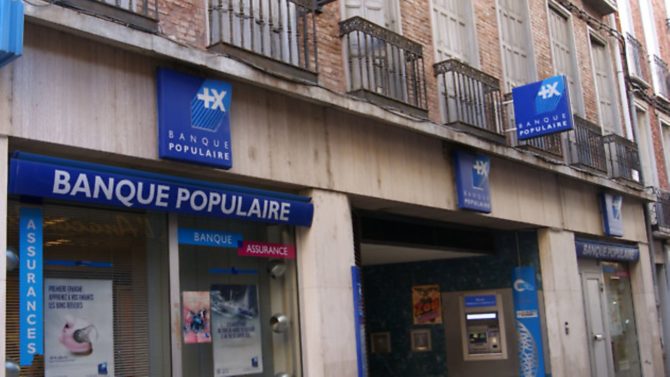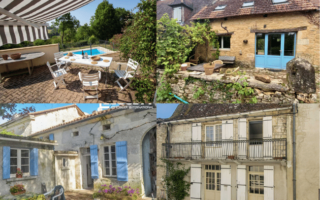Banking in France

Louise Sayers runs through the key issues to consider when opening a French bank account

If you are thinking of purchasing a property in France, you will almost certainly need to open a current account in a French bank. This will simplify your life in France as it will enable you to write French cheques and arrange for bills and property taxes to be paid by direct debit.
French banks do have their foibles. For one thing, banks in France will almost certainly close for lunch. For another, many of them do not accept cash deposits over the counter.
Even getting into a French bank is different: you have to ring and be buzzed into a no-man’s land between two doors before you are scrutinised to make sure you don’t look as if you are going to hold the place hostage and finally granted access. Once your business is done, you then have to be officially buzzed out.
Forewarned is forearmed, so here’s the lowdown on banking in France.
1 Opening an account
If this is your first brush with French bureaucracy, you might well be surprised at how lengthy a process such a simple thing might be. I recently helped some clients with limited French open a bank account and they were amazed at how long it took and how many trees had to die in the process. The paperless office remains a distant dream in France, but as long as you get to grips with the system, you’ll be fine.
Firstly, most banks will need proof that you have a French address. The best piece of paper for this is a utility bill less than three months old. If you have not yet completed the purchase of a property, your best bet is to combine waving a signed compromis de vente with your best powers of persuasion. If you are renting, a copy of your rental contract will be required.
You will also need to take your passport, proof of income (tax return or pay slips) and, in some cases, bank statements of existing bank accounts. If in doubt, go armed with any document which you think could possibly be relevant.
Set aside plenty of time too. In my experience two hours is about the time it takes once they have printed – and you have signed – all the documents. There will be documents to be signed for the opening of the account, for each card (a small annual fee is usually charged for a debit card), for insurance if you take it, for online banking and so on. Very little is offered free, but most banks now bundle these services into a package and offer discounts on the price of taking them individually.
If you can’t face all this, Crédit Agricole does offer a service called Britline which enables you to open an online account remotely. This can be simpler, but you may want to consider a local bank so that if problems arise, you can go in and talk to someone in person. This is always easier than dealing with people on the phone – especially if French is your second language. For the same reason, I would be wary of opening an account with a ‘partner’ of your UK bank whose head office is miles from your property
2 your RIB
Banking terminology is riddled with acronyms and the first one you will come across is the RIB, which stands for Relevé d’Identité Bancaire. These are your unique numbers which allow banks to recognise your account and make transfers, pay direct debits etc. The RIB is made up of four parts:
Code banque
Code guichet
Numéro de compte
Clé RIB
If you are asked for a RIB, you are being asked to provide all of this information and not just the Clé RIB.
When you open an account, your bank will print off several copies of your RIB for you to take away. There are also copies in the back of cheque books, you can print them online if you pay for internet banking and sometimes you can get them from your own bank’s ATM machines.
RIBs are used for setting up contractual transactions such as utility accounts, mobile phone contracts, direct debit payments for taxes, healthcare payments and for receiving benefits such as child benefit from the CAF. If you need to receive transfers from clients, friends or family members with French bank accounts, they will also need this information.
3 IBANs and BICs
A few more banking acronymns for you! Your RIB will also show your IBAN (International Bank Account Number), which is used for international transfers, and your BIC (Bank Identification Code), also known as a SWIFT (Society For World Interbank Financial Telecommunication) code.
Your IBAN is made up of the elements of the RIB with a country identifier tagged onto the beginning.
These codes represent an international standard format to recognise banks and other financial institutions. If you are transferring money internationally, you will probably need IBAN and BIC codes as well as the address of the bank you are transferring to. If you are running a gîte and receiving transfers from guests from outside France, you need to make sure that they have all of this information too.
4 Writing a cheque
French cheques are slightly different to ones in the UK.
The amount in words goes first, after the printed words ‘Payez contre ce chèque…’ and then the payee goes underneath after ‘à’. The amount in figures goes in a box to the right (as in the UK) and underneath this you write the name of the town you are in when you write the cheque after ‘A’ or ‘Fait à’ and the date after ‘Le’. Then you sign as you would on a UK cheque.
The need to know one’s precise global positioning at the exact moment of signature has never been adequately explained to me. Are there towns in France so rife with crime that any cheque signed there immediately arouses suspicion? Or perhaps a cheque signed within particular postcodes demands priority status? Answers on a postcard, if you please!
5 currency transfers
If you are transferring money from any currency into euros, it is unlikely that your high street bank will give you the best deal. Traditionally, banks have made their money on loans and mortgages and foreign exchange is not their speciality.
With the loans and mortgage markets weakening in recent times, banks are seeking to recover costs from other services so have started to offer currency transfers, but generally their rates will be low and they will levy quite considerable charges.
To get the best deal on any international money transfer transaction you should always use a reputable currency exchange specialist.
Fiona Warren, Currencies Direct’s Regional Coordinator for the Pyrénées and Roussillon region, explains some of the advantages of using a currency exchange broker.
“Currency specialists only deal in foreign exchange, buying and selling in such bulk that they are able to keep margins minimal and offer the most competitive rates in the market, often with no charges. Finding a company with a team of reps throughout France and excellent credentials is important for your safey and peace of mind.”
On this last point, it is advisable to use a company which is fully regulated by the Financial Services Authority, and also to be aware that FSA registered is not the same as being regulated.
An FSA-regulated company is obliged to work to a very strict compliance code. Part of this compliance regulation dictates that all client monies should be held in completely segregated accounts. So in the very unlikely event that anything happened to a regulated company, client monies would be not be touched. This is not the case for all companies, as demonstrated in 2010 when Crown Currency Exchange collapsed owing around £19 million to customers who received no compensation.
Currency exchange specialists also offer services such as fixed forward contracts. This is worth considering when peace of mind is important to you regarding the exchange rate. For example, if you are worried about what may happen to the exchange rate during the two- or three-month gap between signing a compromis and the final acte de vente on a house purchase, a fixed forward contract could be the solution to overcome your concerns.
Louise Sayers provides administrative assistance and relocation services to individuals and businesses throughout France
Tel: 0033 (0)4 68 56 54 22
www.france-sos.com
Share to: Facebook Twitter LinkedIn Email


